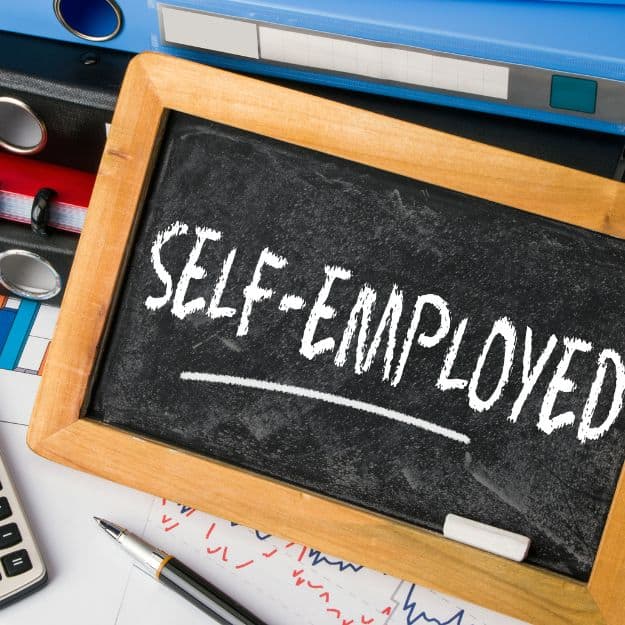
Many people find that being self-employed is a dream come true. You get to be your own boss, on paper, that’s great! You can work the hours that you want, you get to pay yourself, yeah, that’s fantastic! The advantages of self-employment are numerous and include flexibility, control over your work schedule and income potential.
But, there are a number of things that you should be aware of when it comes to being self-employed. We’ll run through some of the things you should be clear on before you take the plunge to become self-employed. We’re Money Hints and our blog is all about providing you with the tips and tricks to achieve financial success.

Taxes
One of your first steps on the road to becoming your own boss is to figure out your tax strategy. Now, when you are in full-time employment, your employer generally deals with your taxes. Now, when you’re self-employed, you need to understand that these are your sole responsibility, no one else’s.
If you fail to keep a proper track of your taxes, you could face a fine from the HMRC, who are the Government body that ensure everyone is paying their taxes properly.
It’s also up to you to keep a track of your expenses so that you can keep a track of everything that you can claim tax back on when it comes to the time to do your tax returns. Filing taxes as a self-employed individual can be complex, so it’s important to educate yourself on the various forms and deductions you may be eligible for.
In addition, setting aside a portion of your income each month for taxes is crucial in order to avoid any financial stress come tax season.
Maintenance Costs
If you’re going self-employed, you should have already accounted for start up costs but you should bear in mind that there are also maintenance costs associated with running your own business for things like any accounting software you may be running.
Things like equipment and software need to be kept updated and also be properly maintained. If you employ someone who works from home, a home office will have a number of maintenance fees so that they can keep their equipment and software running properly.
Accurate Financial Solutions suggests that you should set aside around 10% of your income to cover maintenance costs, but make sure you keep track of what you spend so you can claim it back when you do your tax return.
Marketing and Advertising
One area many self-employed individuals overlook is marketing and advertising expenses. While it may seem like an unnecessary expense, investing in marketing and advertising can greatly benefit your business by attracting new clients or customers.
This includes things like designing a logo, creating ads for social media platforms, printing business cards, and attending networking events. It’s important to carefully budget for these expenses and track them accurately as they can often be claimed as a deductible on your taxes.
Insurance
When you’re self-employed, it’s important to have the right insurance coverage to protect your business and your personal assets. This can include health insurance, liability insurance, and property insurance.
Health insurance is especially important as it can help cover the costs of medical expenses if you were to become injured or sick while running your business. And with many options available for self-employed individuals, it’s important to shop around and find a plan that fits your needs and budget.
Unsteady Pay
This is perhaps the big shock to most people. If you’re working for yourself, it can lead to unsteady paydays. You may also find that this happens more in the early days of your self-employment.
You’ll have to plan accordingly and ensure that you’re set financially, just in-case you get a couple of late payments, you still need to be able to pay your bills and put food on your table.
Retirement
This is one of the main reasons that people decide to work for someone else. When you’re self-employed, your retirement funding rests solely on your shoulders. Unlike traditional employees who may have access to company-sponsored retirement plans, you’ll need to set up and contribute to your own retirement account.
There are many different options available, such as a traditional IRA or a solo 401(k). It’s important to research each option carefully and consult with a professional financial advisor.
The benefits of working for someone else when it comes to your retirement is that you have an employer who will match your contributions but being self-employed, you’re in charge of all of your retirement contributions.
It’s A Whole Lot To Juggle Yourself!

Final Verdict From Money Hints
At the end of the day, being self-employed comes with its own set of challenges, including the responsibility of funding your retirement. However, it also offers more flexibility and control over your financial future. It’s important to take advantage of all the resources available and make informed decisions when it comes to planning for retirement. With proper research and guidance from a professional financial advisor, you can create a solid retirement plan that works for you and your individual needs as a self-employed individual. Don’t wait until it’s too late – start planning for your golden years now and secure a comfortable retirement for yourself.